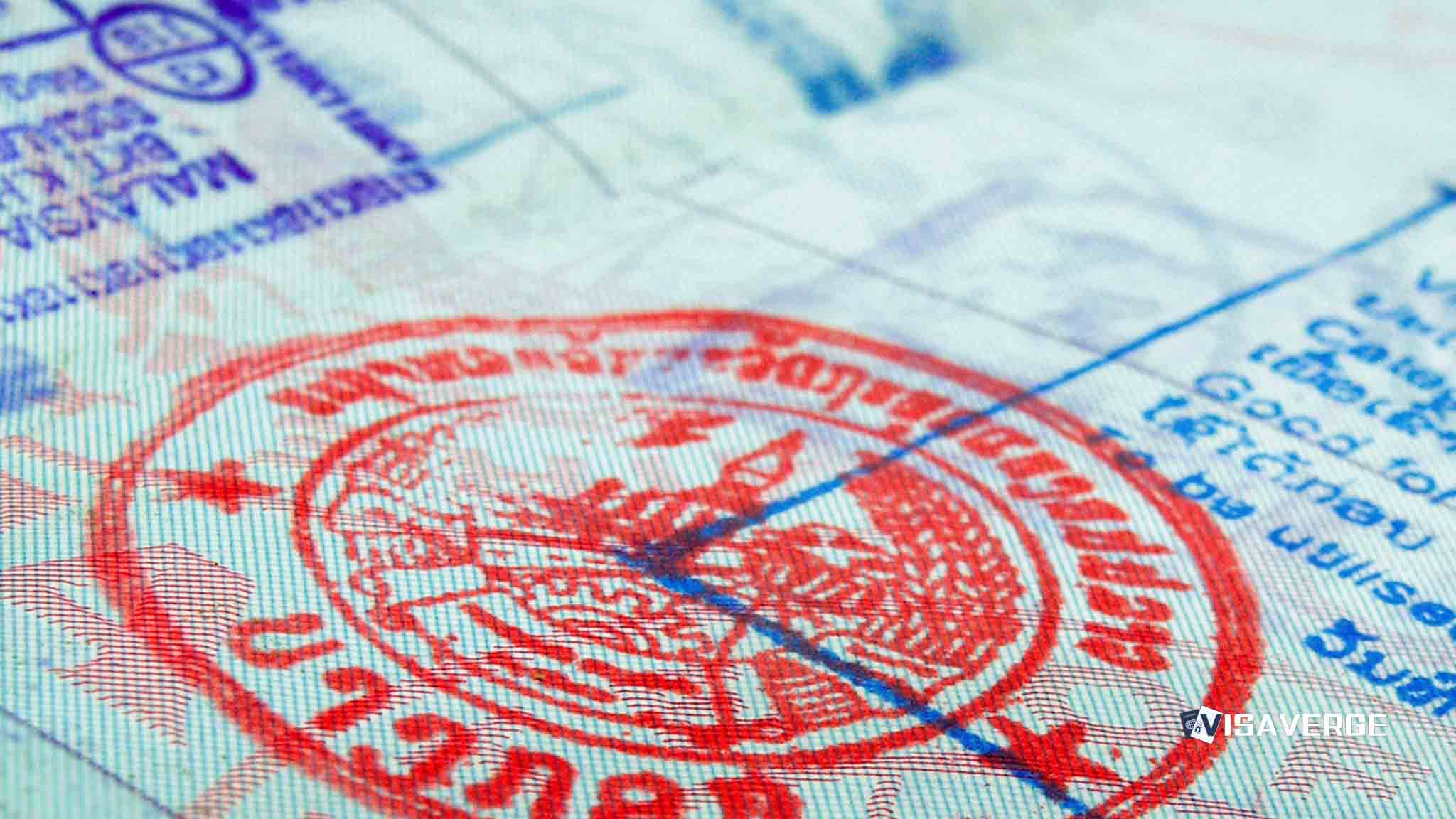(CHENNAI, TAMIL NADU, INDIA) The United Kingdom has widened its campaign against visa fraud to Tamil Nadu, launching a new phase in Chennai aimed at stopping illegal migration before it begins and warning would‑be travelers about fake agents and forged documents. The move, announced on 21 November 2025, targets people in southern India who dream of working or studying in Britain but may fall prey to criminal networks.
Why the campaign expanded to Tamil Nadu

UK Indo‑Pacific Minister Seema Malhotra unveiled the expanded effort in Chennai after officials judged an earlier pilot in Punjab to be successful. That pilot focused on northern districts where many people try to reach the UK each year, often paying large sums to unlicensed agents.
By bringing the same tools to Tamil Nadu, British and Indian authorities hope to cut the number of people reaching the UK on fake visas or through illegal routes. British officials describe Tamil Nadu as a growing “hotspot” because of the number of people asking local agents for help to reach the UK, even when they lack clear job offers, admission letters, or savings.
Core elements of the new phase
The new phase rests on two main tools:
- Targeted outreach in high‑risk communities
- A Tamil‑language WhatsApp chatbot
Officials say outreach workers will spend time in neighborhoods and small towns known for high levels of attempted migration, speaking directly with families and young people about how visa fraud works and what real UK visas look like.
The outreach will explain how illegal journeys often end in debt, exploitation, or deportation, and will try to reach the communities most likely to be approached by fraudulent agents.
The WhatsApp chatbot — what it does
The Tamil‑language chatbot, built for WhatsApp, is meant to put simple, clear advice in the hands of anyone with a smartphone.
- A user in Chennai or elsewhere in Tamil Nadu can message the chatbot to:
- Check if an offer from an “agent” sounds real
- Learn how official UK visa fees work
- Understand which documents are normally required for a lawful application
Officials say the idea is to meet people on the platform they already use every day, rather than expecting them to search government websites.
Political message and framing
Malhotra set out the political message behind the campaign in direct terms:
“This government is acting to stem the flow of illegal migration at its source – using campaigns targeted at hotspot areas to prevent visa fraud, keeping people safe while securing our borders.”
The UK frames the initiative as addressing organized crime and fraud rings operating inside India, rather than placing sole blame on migrants. According to analysis by VisaVerge.com, expanding from Punjab to Tamil Nadu reflects London’s belief that public information campaigns in key sending regions can reduce illegal migration more cheaply and more humanely than only tightening border checks.
Part of a wider UK–India partnership
The initiative is presented as part of the broader Vision 2035 roadmap for UK‑India cooperation on migration, security, and economic ties. Both countries have pledged to crack down on criminal organizations that arrange:
- Fake visas
- Forged bank statements
- Bogus college letters
Those groups often advertise heavily in local languages across Tamil Nadu, offering “guaranteed visas” for large fees and sometimes pushing people to sell land or take high‑interest loans.
Official guidance and legal context
Consular officials stress that genuine UK visas are never sold through private agents and that no one can legally “guarantee” an outcome. British authorities encourage applicants to use the official UK government guidance on visas and immigration at https://www.gov.uk/browse/visas-immigration, where fees, processing times, and document lists are set out in clear terms.
The campaign also connects to tougher laws in Britain. Home Secretary Shabana Mahmood has backed steps to reduce irregular arrivals and punish those who profit from trafficking and smuggling. The government argues that public education efforts in places like Tamil Nadu help support enforcement of the Illegal Migration Act 2023, which seeks to deter people from reaching the UK through unsafe or unlawful routes.
Expected practical impact
Fewer people traveling on fake documents from India could mean fewer complex asylum or removal cases later in Britain. Legal experts note that a person who reaches the UK on a forged visa may then be drawn further into:
- Abuse
- Forced labor
- Sham work arrangements
By cutting off scams earlier, UK and Indian officials hope to reduce both human suffering and long, costly legal battles.
Local reactions and concerns
Local reaction in Chennai includes a mix of support and concern.
- Supporters (education consultants and some travel companies) say rogue agents have damaged trust in the sector and welcome a stronger stand against visa fraud.
- Critics worry that fear of being cheated could discourage honest students from applying to British universities, even when they qualify.
- Community workers stress the need to balance strong warnings with clear routes for legal travel, so young people do not feel doors are closing completely.
British officials insist the focus is on protection, not punishment. The WhatsApp chatbot, offered in Tamil, is designed to give people a private, judgment‑free space to ask questions before paying money to any agent. Examples of common user questions include:
- Is it normal for an agent to keep my passport?
- Is a “work visa without English test” genuine?
Automated replies can flag classic scam patterns or guide people to official sources.
The role of technology and social media
The campaign underlines how deeply everyday technology now shapes migration decisions in Tamil Nadu. Social media and messaging apps are a main source of information about life in the UK.
- Photos of relatives working in London or Manchester spread quickly.
- Ads from visa brokers flood local groups.
By stepping into this online space, the UK hopes its warnings about visa fraud will travel as fast as the false promises.
Economic and diplomatic context
For India, cooperation on such campaigns carries diplomatic and economic weight. Malhotra’s visit to Chennai was linked to the recently signed UK‑India Free Trade Agreement, which London says could:
| Expected benefit | Value |
|---|---|
| Raise UK GDP per year | £4.8 billion |
| Increase wages | £2.2 billion |
| Expand bilateral trade | £25.5 billion |
Indian officials are keen to demonstrate they can work with the UK to manage migration in an orderly way, while still supporting legal mobility for students, professionals, and investors.
Human stories driving the campaign
Behind official statements are personal stories that give the campaign urgency. Many families in Tamil Nadu know someone who:
- Lost savings to a fraudulent agent
- Reached Europe only to be detained and sent back
- Disappeared on a dangerous journey
By putting trustworthy information in Tamil and targeting high‑risk districts from Chennai outward, authorities hope fewer people will make life‑changing choices based on lies.
What will determine success
Whether the expanded campaign succeeds will likely depend on:
- How deeply it reaches beyond major cities into smaller towns and rural areas
- Whether people trust the campaign’s messages more than local agents
For now, the launch in Chennai marks a clear signal: both governments want the route from Tamil Nadu to the UK to run through legal, documented channels, not through visa fraud and criminal networks.
The UK launched a new phase of its anti‑visa‑fraud campaign in Chennai, Tamil Nadu, after a successful Punjab pilot. It combines targeted outreach in high‑risk communities with a Tamil WhatsApp chatbot to help people verify agents and understand official visa requirements. Framed within the Vision 2035 UK‑India partnership and aligned with the Illegal Migration Act 2023, the initiative aims to reduce fake‑visa journeys, limit exploitation, and strengthen bilateral cooperation on migration and criminal networks.













